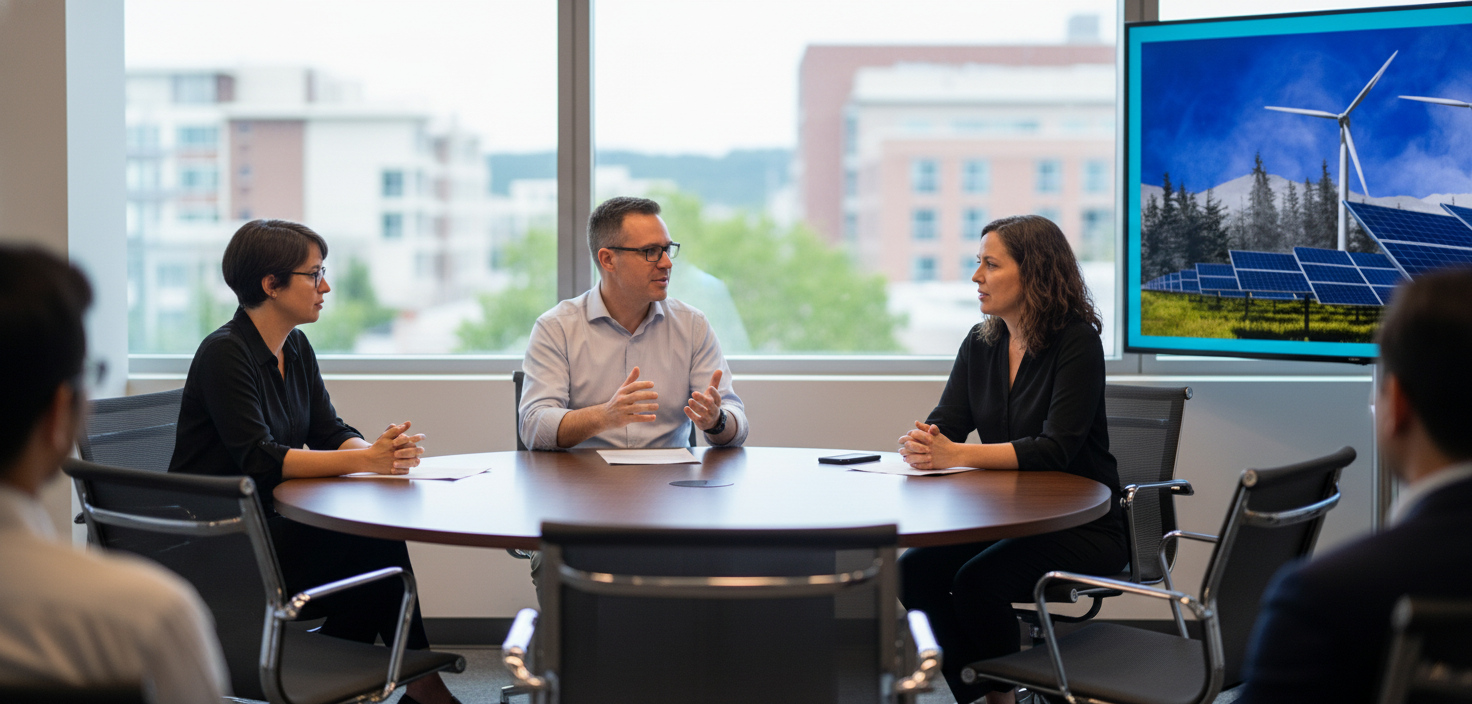MIT Hosts Roundtable on Climate Solutions Amidst Global Turmoil

MIT Hosts Roundtable on Climate Solutions Amidst Global Turmoil
On October 28, 2025, MIT Technology Review hosted a special conversation titled 'Roundtables: Seeking Climate Solutions in Turbulent Times.' This subscriber-only event, exclusively for MIT alumni and subscribers, delved into how companies are pursuing climate change solutions amidst a turbulent U.S. political landscape. With the urgency of climate change becoming increasingly apparent in recent years, a consensus has emerged on the need for proactive corporate responses. This roundtable focused on the practical challenges and innovative solutions facing businesses. Experts from various fields participated in lively discussions, and attendees expressed serious concerns about the impact of the current political climate on corporate climate action efforts. They also emphasized the importance of technological development and investment for climate change solutions, advocating for stronger collaboration between governments and businesses.

The roundtable featured in-depth discussions on promising companies in the climate technology sector and the specific challenges they face, based on MIT Technology Review's '10 Climate Tech Companies to Watch' list. The companies included in this list are contributing to climate change mitigation through innovative technologies in areas such as carbon emission reduction, renewable energy expansion, and sustainable agriculture technology development. However, these companies face numerous obstacles to growth and commercialization, including securing funding, overcoming regulatory hurdles, and navigating intense market competition. The roundtable presented concrete solutions to address these challenges, and participants agreed on the need for government policy support, increased private investment, and research and development funding to drive technological innovation. Because many climate technologies are in their early stages, the importance of consistent long-term investment and support was emphasized. It was also discussed that companies should actively participate in climate change mitigation by fulfilling their social responsibilities and adopting sustainable management practices, in addition to developing technologies.
Renowned speakers such as Casey Crownhart, James Temple, and Mary Beth Griggs participated in the roundtable, leading in-depth conversations. Drawing on their respective areas of expertise, they presented diverse perspectives on the scientific basis of climate change, technological solutions, and policy support measures. Casey Crownhart analyzed the impact of climate change on society as a whole, highlighting the issue of increasing inequality for vulnerable populations. He argued that climate change policies should consider social equity and be designed to benefit all segments of society. James Temple, an energy sector expert, explained the current status and challenges of renewable energy technologies. While acknowledging the rapid advancement of renewable energy technologies such as solar and wind power, he pointed out that they are not yet capable of completely replacing fossil fuels and emphasized the importance of developing energy storage technologies and improving the efficiency of power grids. Mary Beth Griggs emphasized the role of governments and the responsibility of businesses, drawing on her expertise in climate change-related policies and regulations. She argued that governments should provide clear and consistent policy signals and encourage companies to actively pursue innovative technology development and investment. She also stressed the importance of international cooperation to address climate change collectively.
This roundtable was particularly significant as it was held amidst growing uncertainty about the U.S. presidential administration's climate change policies. The administration has demonstrated a passive attitude toward climate change mitigation by withdrawing from the Paris Climate Accord and relaxing environmental regulations. These policy changes have raised concerns that they could negatively impact corporate climate action efforts. However, the companies that participated in the roundtable stated that they will continue to invest in climate change mitigation and pursue innovative technology development, regardless of changes in government policy. They believe that climate change is a critical factor affecting the long-term survival and growth of businesses and that fulfilling social responsibilities contributes to enhancing corporate value. Many companies are also taking proactive steps, such as setting their own carbon emission reduction targets and expanding the use of renewable energy. The current administration is also promoting climate change mitigation as an important policy priority and implementing various policies to support environmentally friendly business activities. It is expected that the combination of these government and corporate efforts will have a positive impact on solving the climate change problem.
The importance of technological innovation for solving climate change was repeatedly emphasized at the roundtable. Participants pointed out that innovative technologies are being developed in various fields, such as carbon capture and utilization, hydrogen energy, and battery technology, but many of these technologies have not yet reached the commercialization stage. In order for these technologies to be commercialized, active investment and support from governments and businesses are needed, and collaboration between industry, academia, and research institutions should also be strengthened to address the challenges that arise during the technology development process. It was also emphasized that it is important not only to develop technologies, but also to improve the efficiency of existing technologies and reduce costs. For example, developing technologies to increase the efficiency and lower the production cost of solar panels can contribute to enhancing the competitiveness of renewable energy. In addition, technological innovation should be made in various fields such as energy-efficient construction technology and smart grid technology. At the roundtable, participants shared examples of their experiences in their respective fields, exchanged ideas for technological innovation, and explored ways to collaborate. It is expected that more innovative technologies that can contribute to solving the climate change problem will be developed through these efforts.
